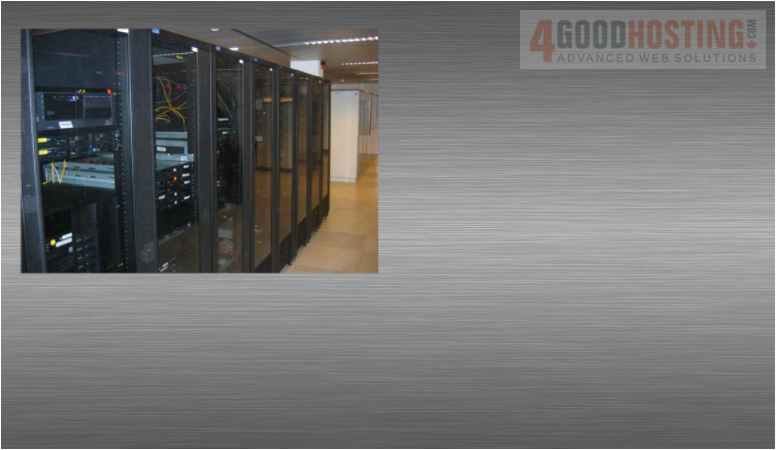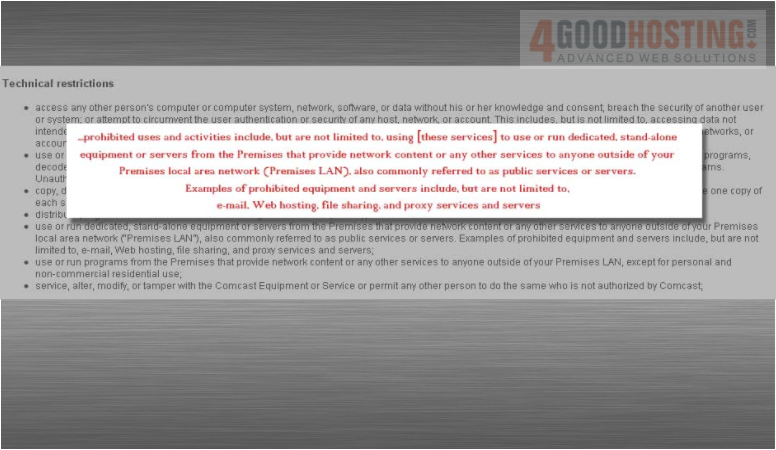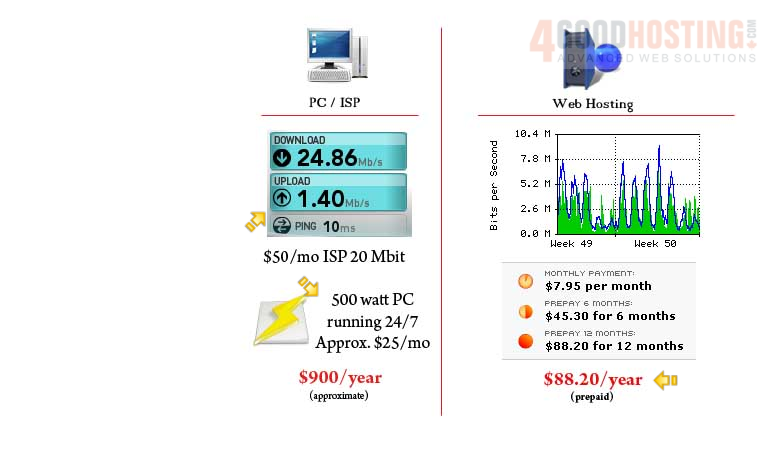Web servers are computers that have been set up by a hosting company, usually in a facility called a datacenter, like the one shown here. A web server's sole purpose is to store websites until someone wants to visit them, and then to quickly respond to the visitor's browser with the site's contents.

A server should be able to respond to at least several dozen requests at a time, if not hundreds. How many websites a server can comfortably host depends on a wide variety of factors, including server hardware and how popular the sites are.
Even the most expensive server hardware isn't going to be very useful without the software to actually get things done. The key software programs of a web server are also themselves called servers, or daemons.
Most servers used for web hosting have at least these kinds of software servers running at all times:
• an HTTP or web server (to provide the websites)
• an FTP server (for uploading files)• an email server or two
• a database server (for storing information essential to the operation of a website)
You might be wondering... Are web servers even necessary? Why can't I just run my websites from a computer at home? There are several very good reasons.
Most ISPs (Internet Service Providers) specifically disallow people from running any type of web-related server on their networks. Doing so can potentially get your Internet account suspended or terminated.

But even if that weren't the case, you have to take into account the upload speed of your connection. While broadband connections are getting faster and faster, upload speeds are usually about 10-20 times slower than download speeds as shown here

When running a server on your computer, your upload speed would directly determine the total download speed shared across everyone accessing your sites. Most likely you'll only be able to offer up a megabit or two, and even if you're just hosting a website with pictures on it, that will quickly be used up by only a few people.
A professional server with a hosting provider, on the other hand, could have a connection as fast as 10,000 megabits. You'd have to pay a fortune to get even a 100 Mbit connection to your house, whereas a hosting provider can offer you space on a server with an ultra-high speed connection for a fraction of the cost.
Moreover, most consumer broadband ISPs aren't reliable enough for hosting websites. You'll probably want people to be able to visit your sites at all hours of the day, and that won't be possible if your Internet connection is acting up or your ISP is performing maintenance.
You also have to factor in the costs of running a computer for extended periods, including the cost of any parts that may fail and increased electricity costs.
This completes the tutorial. You should now have a good understanding of what a server is, and why you can't just use your personal computer as one.

